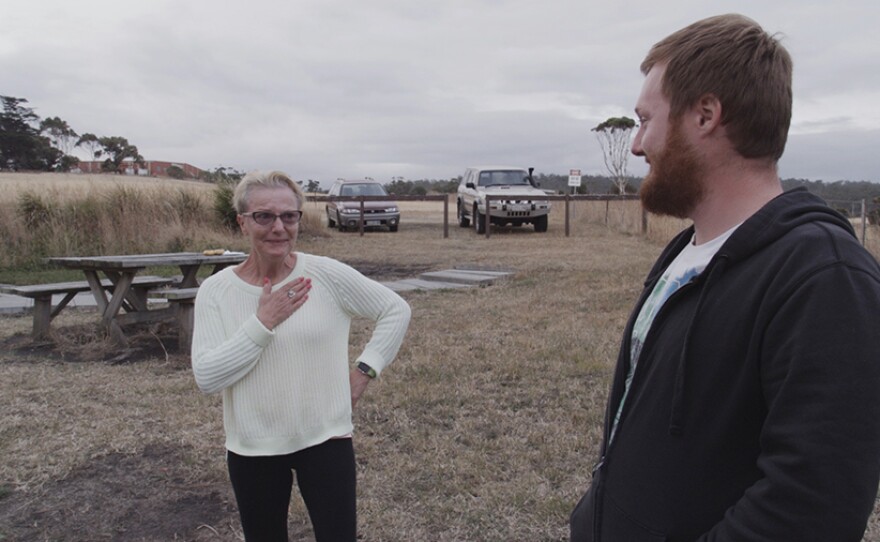From the streets of Minneapolis, the aboriginal lands of Australia, and the killing fields of Cambodia come the powerful stories of three people who had the courage to step out of the haunting, tragic darkness of the past, risking everything to reach the light of their own compassion.
“Risking Light” is a thought-provoking documentary that explores resilience, and the painful process of moving from grief to compassion and forgiveness.
Through the unforgettable stories of Mary Johnson, who grieves a murdered son; Debra Hocking, a victim of government-sanctioned genocide; and Kilong Ung, who survived the terror of the Khmer Rouge, the film challenges us to examine our own beliefs about forgiveness and ask “What would the world look like if we could learn to forgive one another?”

The stories highlighted in “Risking Light” demonstrate the isolation when tragedy occurs, a feeling of aloneness that can never be breached. Though the stories have unique circumstances, different cultures, and geographical separations, they speak to our universal humanity.
We are all striving to find ways to overcome the past, honor our heritage and have hope for the future. Watching these stories gives a feeling of hope for humanity, regardless of the strife that divides us.

The theme of restorative justice resonates throughout the documentary. Justice is often framed as retribution or punishment to the offender. But what if justice allowed victims and survivors to process their pain and heal?
How To Watch
Tune into the KPBS broadcast or the film is available for streaming on iTunes. A DVD or Blu-ray for home use are available for purchase. Or purchase for educational market - College/University, Library, Community Group, K-12, Nonprofit, or Government.
Credits:
Executive Producer/Director/Writer: Dawn Mikkelson. Producer: Miranda Wilson. Associate Producer/Cinematographer (U.S.): Matt Ehling Cinematographer (Cambodia): Jesse Roesler Cinematographer (Australia, Tasmania): Russell Hawkins Cinematographer (Australia, Sydney): Emma Paine Consulting Editor: Doug Blush. Editors: Peter Rhodes and Dawn Mikkelson. Composer (Original Music): Chris Strouth. Associate Producer/Cinematographer (U.S.): Matt Ehling Cinematographer (Cambodia): Jesse Roesler Cinematographer (Australia, Tasmania): Russell Hawkins Cinematographer (Australia, Sydney): Emma Paine Consulting Editor: Doug Blush





